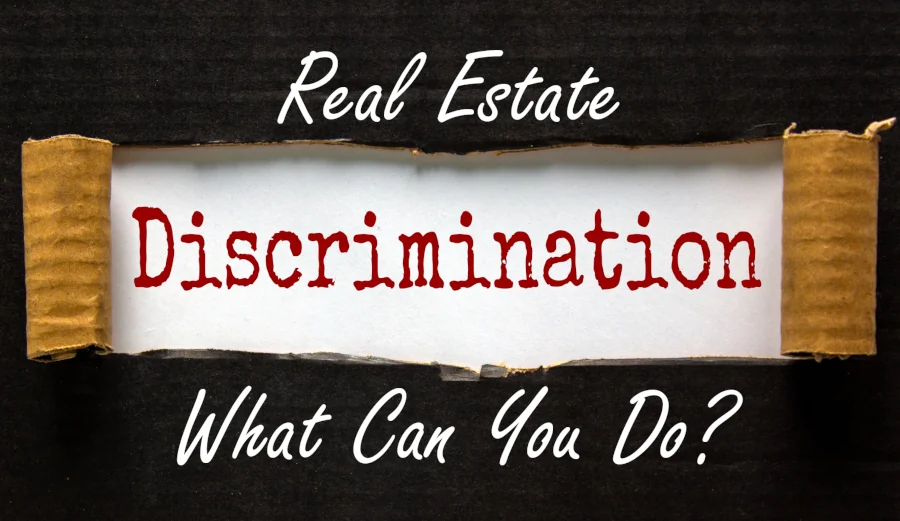
When Real Estate Discrimination Goes Wrong, What Can You Do?
There are a number of laws and associations established to protect buyers against real estate discrimination. Let's go into this!
Purchasing a home is one of the biggest investments many Americans will ever make during their lifetime. This endeavor is much more than a mere home purchase or property investment. It encompasses the economic hopes, dreams and destiny of those involved. Sadly, the process of purchasing a home can present some new appalling experiences to some, like discrimination.
Fortunately, home buyers are protected against real estate discrimination by certain laws, and a homeowner can face severe financial penalties if found in violation of these laws.
“Why you ask?”
A potential buyer can sue for actual monetary losses as well as attorney fees, court costs, and punitive damages. The first real estate laws against racial discrimination was implemented in 1866, The “Civil Rights Act of 1866”. We will go more into this a little further below.
RELATED ARTICLE: Ready to purchase your home? Some top points you should know!
What are Real Estate Discrimination Laws?
Housing or real estate discrimination occurs when a seller, landlord, mortgage lender, or real estate agent discriminates against someone in the sale, rental, or financing of a home, condo, or apartment. Both federal and state governing bodies regulate real estate discrimination under the “Fair Housing Act, Title VIII of the Civil Rights Act of 1968”, as well as individual anti-discrimination statutes.
The first US federal law to affirm that all citizens, no matter the color of their skin, are equally protected by the law was the “Civil Rights Act of 1866”. This was intended to protect the rights of African descent who had been born in or were brought to the United States. Even in 1968, the courts upheld the Civil Rights Act of 1866 on the case “Jones vs Alfred H. Mayer Company”, which reach all the way to the US Supreme Court.
The “Fair Housing Act of 1968” prohibits real estate discrimination by homeowners and real estate firms. Anyone involved in the sale of real estate or real property is legally bound by these laws and must avoid discriminating based on any of the following factors:
- Race
- Gender
- Color
- Religion
- National Origin
- In certain localities, there are discrimination laws or ordinances that cover sexual orientation as well
RELATED ARTICLE: First-Time Home Buyer Assistance Program
What are other discrimination laws and their purpose?
- State Anti-Discrimination Statutes: The Fair Housing Act doesn’t cover all types of discrimination or all forms of housing according to today’s modern standards. Therefore, the majority of US states have enacted their own legislation providing additional protection against real estate discrimination.
- The Americans with Disabilities Act, Title III: This act prohibits discrimination against people with disabilities in places of public accommodations and commercial facilities. In addition, the Equal Credit Opportunity Act prohibits discrimination with a credit application based on color, race, religion, national origin, sex, age, marital status. This Act also protects applicants whose income is derived from public assistance programs.
- Article 10 of the National Association of REALTORS® Code of Ethics: This act prohibits REALTORS® from denying fair, professional services to anyone for reasons of color, race, sex, religion, gender identity, familial status, sexual orientation, handicap, or national origin.
RELATED ARTICLE: Realtor Agency Relationships
What can you do if you suspect discrimination?
If you suspect real estate discrimination in any form, you can call the “Local Board of REALTORS”®, which accepts complaints that allege violations filed by a home buyer. Allegations of discriminatory treatment in the rental, purchase, or availability of real estate is severely investigated and final recommendations are executed.
You can also call and file a complaint with your nearest (HUD) office, “United States Department of Housing and Urban Development“.
RELATED ARTICLE: Single Agency Relationships
Does Your Real Estate Agent Discriminate?
All real estate Brokers, Broker Associates, and Sales Associates go through a comprehensive real estate course training. In this training, extensive coverage of the real estate license laws, disclosures and discrimination laws are implemented. No ethical agent should promote discriminatory practices, and, in most cases, they will not.
When you’re looking for a Realtor® to help you with the purchase of your home, commercial space or land, it’s important to know where to turn. You want someone fair, that goes to bat for you and your best interest. As well as one that has a suitable support system to help get the job done. You can always review a licensee’s public records and keep in mind these hands-on approaches.
- Ask friends and family who they have used with great results
- Look up agent reviews online
- Search the public records for any negative license information
- Call different agents in the area and talk with them
- Or you can trust the Kashmiri Realty & Property Management Company to get the job done!
Tell us about your real estate agent experience. Comment below.


